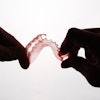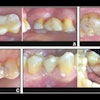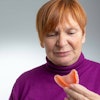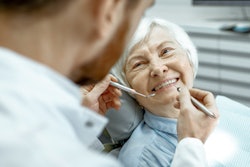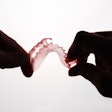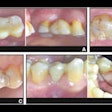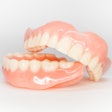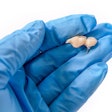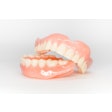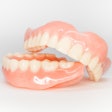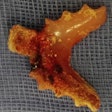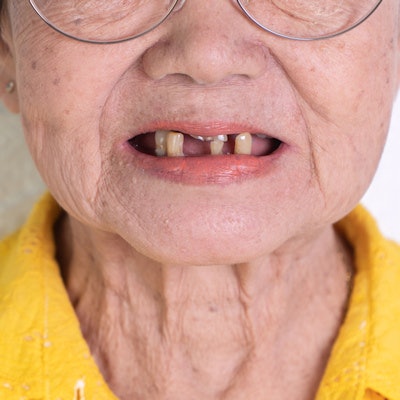
Social isolation was associated with fewer remaining teeth and accelerated tooth loss among older adults in China in a study published on January 17 in Community Dentistry and Oral Epidemiology.
This is believed to be the first study to use data from a nationally representative group to examine how social disconnection affects oral health, the authors wrote.
"Maintaining and improving social connections may benefit oral health among Chinese older adults," wrote the group, led by Xiang Qi from the Rory Meyers College of Nursing at New York University.
Link between tooth loss and social isolation
In 2010, about 158 million people, or approximately 2.3% of the world's population, were missing teeth, the authors wrote. Older adults are more likely to experience tooth loss, which has been associated with cognitive decline, reduced physical function, and chronic conditions. Additionally, a lack of teeth can diminish a person's quality of life, affecting speech, self-esteem, and more.
Other global health concerns include social isolation and loneliness, and these issues also disproportionately affect older adults. In the U.S., approximately 24% of community-dwelling adults ages 65 and older are considered socially isolated.
Several factors may link social disconnection and health outcomes, including physiological dysregulation and lifestyle, the authors noted. For instance, people who are lonely are more inclined to smoke, and those who lack social interaction may not brush their teeth as frequently or visit the dentist, which can lead to tooth loss.
To explore the connection between tooth loss and social isolation, Qi and colleagues used the Chinese Longitudinal Healthy Longevity Survey to analyze data from 4,268 people ages 65 and older. Participants completed three surveys about lifestyle habits, social isolation, loneliness, and the number of teeth they lost over a seven-year period that ended in 2018.
Research shows effect of isolation
People were considered socially isolated if they lived alone, were not married, did not participate in social activities, and lacked social support. Approximately 28% of participants were considered socially isolated, according to the authors.
After adjusting for sociodemographic and lifestyle factors, oral hygiene behaviors, physical and cognitive health, and loneliness, Qi et al found social isolation was associated with having fewer teeth and losing teeth at an accelerated rate. On average, socially isolated adults had 2.1 fewer natural teeth and lost teeth at 1.4 times the rate of those who had stronger social connections, they wrote.
The study had limitations, such as participants self-reporting their number of missing teeth and health status, the authors noted. Interventions and programs that promote intergenerational support within families and improve older adults' peer and social connections within communities need to be developed, they wrote. Additionally, longitudinal cohort and intervention studies should be conducted to better understand the association between oral health and social connections.
Nevertheless, "these findings expand our knowledge about the impact of social disconnection on tooth loss," the authors concluded.


